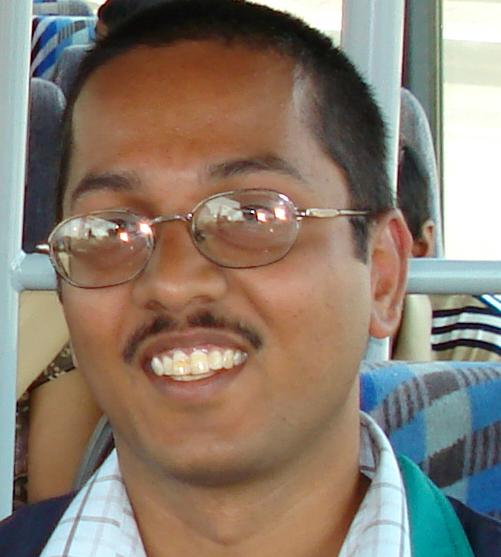Source: http://www.indiantelevision.com/mam/headlines/y2k6/nov/novmam66.htm
MTV International has developed the Wellbeing Index to compare the perceived wellbeing of 16-34 year-olds in different parts of the world.
The index is based on the perceptions of young people, how they feel about safety, where they fit in to their society and how they see their future. The country where young people had the greatest perceived sense of well being was India, followed by Sweden with the US coming third.
MTV International president Bill Roedy says, "The index is a unique and original way of looking at well being by focussing on the perceptions of the young people themselves .Overall our study showed that developing countries had considerably higher levels of happiness and optimism, but that other factors such as the lack of personal safety compromised their perceived wellbeing."
The Wellbeing Study's main findings are:
The Future
- Kids in developing countries were more positive about their future than those in developed nations.
- A majority of 16-34 year-olds in developing nations expected their lives to be more enjoyable in the future, led by China with 84 per cent.
- More 8-15 year-olds in developing nations expected to have more fun in the future than 8-15 year-olds in developed countries. 83 per cent of Chinese, 69 per cent of South African and 68 per cent of Mexican 8-15 year-olds expected their lives to be more fun, compared to 51 per cent of American, 42 per cent of French and just 30 per cent of German kids.
-- In contrast to developing nations, a majority in every developed country expected to earn less than their parents.
-- Some 79 per cent of Indonesians and 78 per cent of Chinese 16-34 year-olds believed that they will earn more than their parents. Just 17 per cent of Japanese, 27 per cent of Germans and 32 per cent of French thought the same.
Happiness
- Globally, only 43 per cent of 16-34 year-olds asked said they were happy with the way things were. Younger children aged 8-15 were happier, but surprisingly not much more so: 57 per cent on average.
- However, developed nations dragged down the averages. Young people in developing countries were at least twice as likely to feel happy as their counterparts in developed nations.
- More than 70 per cent of 16-34 year-olds, and 80 per cent of 8-15 year-olds said that they were happy in Argentina and Mexico, versus fewer than 30 per cent of 16-34 year-olds and under 50 per cent of 8-15 year-olds in the US and the UK.
Religion
- Young people in the developing world were more religious, and there was a correlation between youth who were actively religious and happiness levels. Over half of 16-34 year-old Indonesians, Brazilians and Indians said they were religious, compared to one in four in the USA and one in 10 in Sweden and Germany.
- 76 per cent of Japanese, 63 per cent of French and 50 per cent of Swedes asked said that they were faithless.
-- 40 per cent of Germans and 35 per cent of Americans described themselves as believing in a higher power, but found traditional religious institutions too rigid.
Stress
- One consistent finding across ages and in every country was the pressure on youth to succeed. Kids and young people are stressing about the same things as adults. More than half of 8-15 year-olds worry about getting a job. By comparison, only 34 per cent were concerned about fitting in at school and only 25 per cent worried about looking cool.
- 66 per cent of 8-15 year-old Brazilians were worried about their weight while 93 per cent said that looking good was a sign of success.
- 65 per cent of 16-34 year-olds chose listening to music as their main form sof stress relief, with television (48 per cent) their second choice. For younger children, watching television (59 per cent) was slightly more popular than music (58 per cent).
Terror and safety
- Terrorism came just eighth in the list of fears for 16-34 year-olds and 10th in the list of fears for 8-15 year-olds. Parents dying, cancer, Aids, and robbery were greater fears for both age groups.
- Personal safety is a major issue for young people in the developing world.
- Kids in Brazil, Mexico and Indonesia were the most fearful about their personal safety.
- The forces of globalization and constant access to the news media create a world that feels less safe to kids and young people in all countries. The more news media young people watched, the less safe they felt.
National patriotism
- Kids from developing nations appear to be more patriotic.
-- 91 per cent of Indian 16-34 year-olds were proud of their country. By contrast only one in three 16-34 year-olds were proud to be German or Japanese.
-- 63 per cent of Americans asked were proud of their country.
School and bullying
- In 12 out of the 14 countries surveyed more than two thirds of 8-15 year-olds said that getting good grades in school was their top priority.
- The figures ranged from 88 per cent in South Africa to just 37 per cent in Sweden.
- While bullying happens everywhere, it is more of a problem in the developed world.
- 56 per cent of kids in the USA and UK said they had been victims of bullying, following by Denmark, France and South Africa on 49 per cent. However, a developing nation, Argentina, topped the list of kids who had been bullied, with 72 per cent.
Thursday, December 7, 2006
Subscribe to:
Post Comments (Atom)

No comments:
Post a Comment